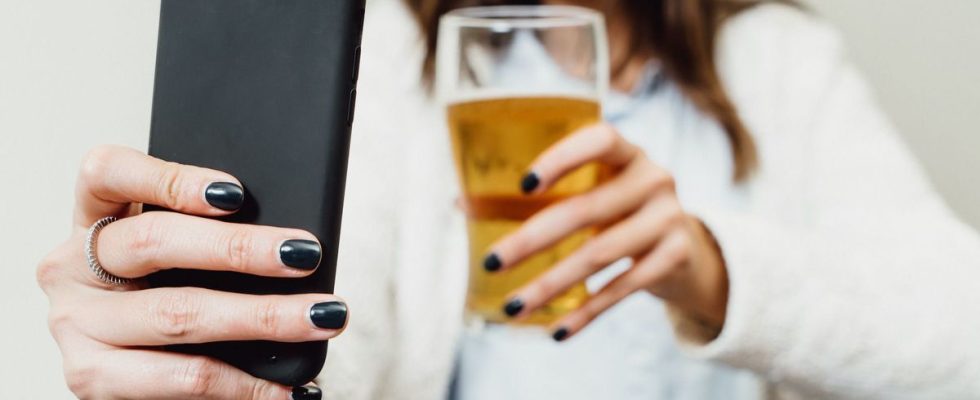Published on
Updated
Reading 3 min.
Because several influencers had published content promoting alcohol brands on Instagram, Addictions France summoned the multinational Meta in 2022 to have the posts deleted. Today the Paris Court of Appeal requires the platform to provide the identity of the influencers involved so that they can be prosecuted.
Is the party over for influencers? The one with apparent alcohol perhaps… According to an announcement from the Additions France association on February 1, the multinational company Meta would be ordered to provide the identity of all French influencers who promoted alcohol in their Instagram content by the Paris Court of Appeal.
A legal drama to reach those (ir)responsible
This decision follows a real legal drama that began in 2022, when Addictions France took Meta to court to have Instagram posts deleted. Influencers with 5 million followers (like Julien Geloën (422,000 subscribers), Bastien Grimal, (1 million subscribers), or Chloé Bleinc (911,000 subscribers) promoted several dozen alcohol brands without any constraints in a way illegal (such as Gray Goose, Heineken, Laurent Perrier, Havana Club or Aperol).
In a judgment rendered on December 21, 2023, the Paris Court of Appeal confirmed Meta’s conviction pronounced on January 5, 2023 by the Judicial Court and now requires the platform to provide the identity of the influencers involved.
At first instance, the Meta company was therefore ordered to delete 37 publications published by 19 influencers on Instagram and to transmit their identity and contact details to Addictions France so that they could be prosecuted. “The contents have been deleted, but Meta has not transmitted the identification data of their authors” indicates the press release. The American giant appealed the judgment, contesting Addictions France’s right to use the Confidence in the Digital Economy Law (LCEN) and the accelerated procedure on the merits, provided for by article 6.1.8.
The Court of Appeal nevertheless rejected Meta’s arguments. She thus indicated that “there is therefore indeed, through the unregulated incitement to consume alcohol, damage, within the meaning of article L 6.I.8 of the LCEN.”
“By emphasizing the responsibility of platforms to create a safe and law-compliant digital environment, the Court of Appeal’s judgment constitutes a major step forward in terms of Evin law but also with regard to the question of anonymity on the internet” reacts the association.
To date, however, Meta has not transmitted the slightest information allowing the identification of the perpetrators of the violations of the Evin law.”To be able to transmit these contact details, it would be necessary to put in place appropriate tools when creating accounts. Addictions France book, but nothing seems to be in place.
Yet, on the other hand, the company seems to want to put on a brave face by wanting to strengthen parental authorization to strengthen the protection of adolescents. A double game, which perplexes the association. “Addictions France today expects Meta to really cooperate, while taking measures to combat the dissemination of illegal content on its platforms (Instagram and Facebook) promoting alcohol to a young and particularly impressionable audience.
What does the “influencers” law do in all this?
As the press release points out, it is also important to recognize that the problem comes from the perpetrators themselves: alcohol brands and influencers. But according to Franck LECAS, legal manager at Addictions France: “Not only does the influencer law not provide any concrete solution for better regulation of addiction marketing by influencers, but in terms of transparency, it is also insufficient. It could have required the latter to display legal notices (as for all websites) allowing associations in particular to take legal action against the creators of illegal content, without having to initiate heavy proceedings against the platform..
Instead, the law entrusts the DGCCRF alone with the responsibility of controlling the activities of hundreds of thousands of content creators. Addictions France is also today asking the DGCCRF to urgently take note of the reports made by the association in August 2023. “Alcohol” content promoted by 20 other influencers, including Lena Situations, which despite the explanations relating to the Evin law transmitted by Addictions France, continue to publish with complete impunity.
